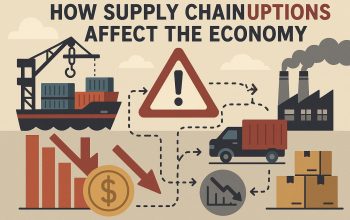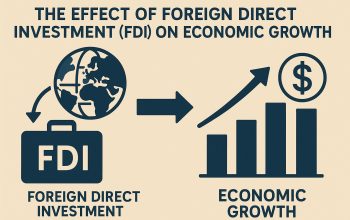The Impact of Public Debt on Future Generations
Public debt, also commonly known as government debt, presents a considerable challenge for numerous economies worldwide. Understanding how this financial phenomenon affects future generations is crucial. This understanding encompasses the economic implications as well as societal and political dimensions that are deeply intertwined with public debt.
Understanding Public Debt
In essence, public debt comprises the sum that a government owes to its creditors. These creditors can range from domestic to foreign individuals, institutions, and even other governments. Public debt arises when a government borrows money to fund expenditures that surpass its generated revenues. If managed wisely, public debt can serve as a catalyst for economic growth by financing essential infrastructure projects and public services. Nonetheless, excessive levels of debt can precipitate numerous adverse outcomes.
Economic Consequences for Future Generations
The immediate and perhaps most palpable way public debt affects future generations is through its profound impact on the economy.
Higher Taxes: As debt levels rise, future governments might encounter the need to increase taxes in order to service the existing debt. This increase can potentially diminish disposable income among citizens, thereby curtailing economic growth as consumer spending might reduce.
Reduced Public Investment: High levels of public debt often compel governments to shrink their public investment budgets. This can lead to a deterioration in infrastructure quality, educational systems, and public services, each of which plays a vital role in fostering economic growth and development for future generations.
Interest Burden: When a significant portion of government revenue is dedicated to servicing existing debt, it leaves a smaller amount available for productive expenditure. This redirection of resources can stymie efforts to enhance public welfare and economic capacity.
Inflation and Currency Stability
Excessive public debt can trigger inflationary pressures in an economy. Should a government choose to print money as a means to finance its debt obligations, it could catalyze inflation, consequently eroding the purchasing power of the citizens. Beyond inflation, high levels of public debt can undermine the stability of the national currency, which might exert detrimental effects on international trade and foreign investment.
Societal Implications
Beyond the economic fallout, public debt holds sway over the social fabric of a nation. High levels of debt may necessitate austerity measures that translate into dwindling public services and social welfare programs. Reduction in these vital services can deepen societal inequality and diminish the overall quality of life.
Generational Equity
Public debt raises the critical issue of generational equity. While current generations reap the benefits of heightened government expenditure, it is the future generations that inherit the responsibility of repayment. This mismatch elicits both moral and practical questions concerning fairness and accountability across generations.
Political Repercussions
Managing public debt efficiently is a substantial political challenge. Leaders of the future may find their policy options constrained by pre-existing debt commitments. When government debt burgeons, it might lead to political instability, as citizens react adversely to austerity measures or the introduction of new taxes. Thus, it is imperative for policymakers to manage public debt judiciously to endow future generations with economic stability and wide-ranging policy flexibility.
Strategies for Mitigating Impacts
Upkeep of sustainable debt levels is paramount for mitigating negative consequences on future generations. Viable strategies could embrace:
Pursuing Responsible Fiscal Policies: Ensuring that government expenditures do not wildly surpass revenues is a foundational principle of sound fiscal management.
Implementing Growth-oriented Economic Policies: Such policies are quintessential for not only short-term economic recovery but also for fostering long-term resilience.
Promoting Economic Diversification: By reducing a heavy reliance on singular sectors or revenue sources, countries can make their economies more robust and adaptive in the face of evolving global economic landscapes.
For comprehensive management of public debt, a nuanced blend of planning, regulation, and oversight is indispensable. These elements work together to guide a prudent approach towards maintaining economic balance without burdening future generations. For further and more detailed insights, you may consult resources such as the International Monetary Fund.
By embracing fiscal responsibility today, societies can bestow benefits upon future generations, enabling them to enjoy a stable and thriving economic environment. This commitment to judicious debt management can pave the way for progressive and holistic development that persists across generations.
This article was last updated on: August 11, 2025




